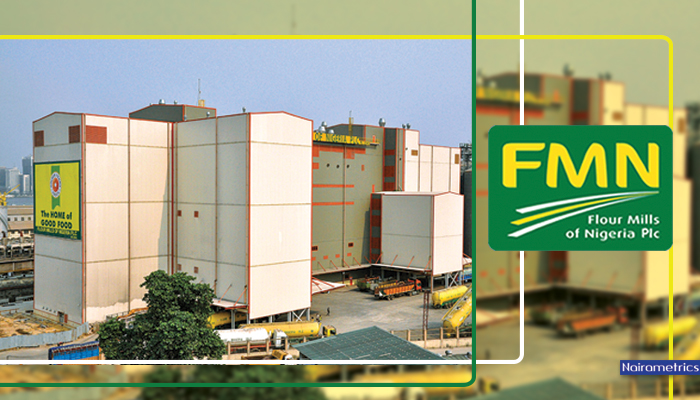Flour Mills of Nigeria PLC (FMN), one of the largest food and agro-allied groups in Nigeria, has announced the issue of up to N55 billion Series 3 Commercial Papers (CP) under its NGN200 billion Commercial Paper Programme.
The CP issuance is open from Friday, 23 June 2023 to Friday, 30 June 2023, and is aimed at raising short-term funds for the company’s working capital and general corporate purposes.
FMN is rated “A-” by Agusto & Co and “A” by DataPro, reflecting its strong financial position, diversified product portfolio, extensive distribution network, and dominant market share in the Nigerian food industry.
The company has been operating in Nigeria since 1960 and has grown to become a leading producer of flour, pasta, noodles, edible oil, sugar, animal feeds, and other food products. FMN also has significant investments in the agro-allied sector, such as farming, milling, storage, and distribution of grains and other crops.
The CP issuance has the following details:
- Issuer: Flour Mills of Nigeria PLC
- Arrangers: United Capital PLC
- Series: 3
- Tenor: 239 days
- Target Size: Up to N55 billion
- Discount Rate (%): 12.4042%
- Implied Yield (%): 13.5000%
- Minimum Subscription: N5 million
Flour Mills’ debt mounting
Flour Mills has a total external borrowing of about N303 billion as of December 2023 out of which about N52.8 billion are commercial papers and bonds. The company’s debt doubled within a year going from about N148 billion to N303 billion.
- The debt profile includes unsecured borrowings at amortized cost, with the Bank of Industry (BOI) leading the way with N31.7 billion. The company has also availed itself of the Central Bank of Nigeria’s Commercial Agriculture Credit Scheme (CACS), securing N347.3 million.
- Additionally, Flour Mills has benefited from the Real Sector Support Facility (RSSF) with a debt of NGN138.3 billion.
- Other sources of debt include private sector-led programs such as the Accelerated Agriculture Development Scheme (P-AADS) and the Anchor Borrowers Programme of N1.4 billion
- The company has engaged in intergroup borrowing amounting to NGN52.9 billion.
- Debt classified as “other bank loans” also amounts to N77.4 billion.
Flour Mills’ net equity is about N198.2 billion as of December 2022.
Can it repay these loans?
Flour Mills generated a cash flow from operating activities of N36.1 billion in its 9 months results published in December. Its debt repayments including interest amounted to N37.5 billion.
As things stand the company can continue to repay the loans however, it will come at the expense of shareholders who will see dividend repayment dwindle in the short term. For example, the dividend paid the whole of last year was just N5.7 billion much less than debt repayment.
According to comments from Augusto & Co, one of the rating agencies, Flour Mills’ bond journey will be successful if it generated enough earnings and cash flow to meet the cost of debt.
- “Going forward, Flour Mills has successfully registered a Bond Programme of up to ₦200 billion to support its future expansion plans. Whilst we anticipate an uptick in the Company’s gross debt level from issuances under this new Bond Programme, we expect the improvement in both earnings and cash flows to be derived from the debt-induced expansion to have some cushioning effect on the possible increase in finance costs and aggregate debt levels. However, the Company’s ability to use debt effectively amid rising input and finance costs will need to be demonstrated. “
Operating profit (before finance cost) was N51.9 billion in its first 9 months compared to N40.4 billion same period a year earlier. However, its finance cost more than doubled to N37.5 billion, leading to a 50% decline in pre-tax profits.






















